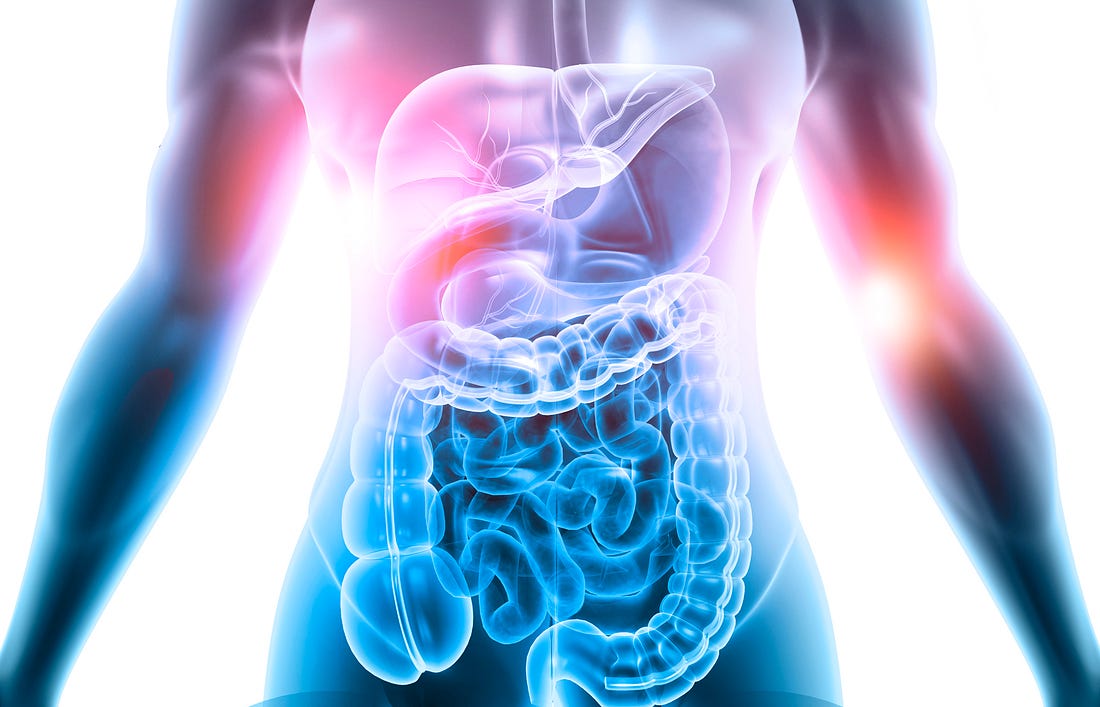
Imagine sitting down to enjoy a hearty meal—a perfectly cooked steak, crisp vegetables, and a fresh salad. You’ve eaten this kind of meal countless times before, but lately, something feels off. Maybe you feel bloated afterward or sluggish for hours. Perhaps you’ve started noticing digestive discomfort, even when you eat foods that should be easy to digest.
For many people, these frustrating issues stem from one overlooked factor: a decline in proteolytic enzymes. As we age, our body’s ability to produce these critical enzymes drops, leaving us vulnerable to poor digestion, inflammation, and even chronic illness.
What Are Proteolytic Enzymes?
Proteolytic enzymes, also known as proteases, are specialized proteins that help break down other proteins into smaller peptides and amino acids. These enzymes are crucial for digestion, but they also support immune function, reduce inflammation, and aid in tissue repair. Common types of proteolytic enzymes include bromelain (from pineapples), papain (from papayas), and trypsin and chymotrypsin (produced naturally in the pancreas).
Why Are Proteolytic Enzymes So Important?
While proteolytic enzymes are most famous for their role in digestion, their benefits extend far beyond the gut. Research shows these enzymes can:
1. Reduce Inflammation
Studies have shown that proteolytic enzymes can help manage inflammatory conditions such as arthritis by breaking down excess fibrin, a protein linked to inflammation and scar tissue formation. For example, research published in Surgical Neurology International highlights their effectiveness in reducing post-operative swelling and pain.
2. Accelerate Healing
Athletes and those recovering from injuries often use proteolytic enzymes to speed up tissue repair and reduce swelling. These enzymes help break down damaged tissue, allowing the body to rebuild stronger and faster.
3. Support Immune Function
By breaking down unwanted proteins and toxins, these enzymes help reduce the burden on your immune system, allowing it to function more efficiently. According to Dr. Axe, proteolytic enzymes can even modulate the immune system, making them a potential ally in managing autoimmune conditions.
4. Combat Digestive Issues
Proteolytic enzymes improve nutrient absorption and can reduce gas, bloating, and indigestion. As noted by Healthline, insufficient enzyme production can lead to poor nutrient absorption and digestive discomfort.
Why Age (and Lifestyle) Reduces Enzyme Production
By the time you reach your 40s or 50s, your body’s natural enzyme production slows significantly. Processed foods, environmental toxins, and chronic stress further deplete these critical enzymes. Cooking food at high temperatures also destroys natural enzymes, making it even harder for your body to properly break down what you eat.
This decline is why even “healthy eaters” can struggle with digestive problems. Without enough proteolytic enzymes, undigested food particles ferment in the gut, contributing to bloating, discomfort, and nutrient deficiencies. This can lead to a cascade of health issues over time
The Link Between Proteolytic Enzymes and Cancer
Emerging research suggests that proteolytic enzymes may also play a role in cancer prevention and support. Studies indicate that these enzymes can help reduce tumor growth by breaking down the protective coatings cancer cells form to evade the immune system. In fact, researchers have explored the use of proteolytic enzymes as part of integrative cancer therapies. According to Memorial Sloan Kettering Cancer Center, these enzymes show promise in supporting conventional cancer treatments.
Fun Facts About Enzymes: Nature’s Tiny Workhorses
Did you know that enzymes are some of the most fascinating molecules in the human body? Here are a few intriguing tidbits about these microscopic powerhouses:
Enzymes Are Ancient: Enzymes have been around for billions of years. They played a crucial role in the earliest forms of life, helping primitive organisms break down nutrients and survive in harsh environments. Without enzymes, life as we know it wouldn’t exist!
They’re Incredibly Efficient: Enzymes can speed up chemical reactions by millions of times. For example, the enzyme catalase can break down millions of hydrogen peroxide molecules into water and oxygen every second.
Enzymes Are Picky Workers: Each enzyme is highly specific to its task. For instance, amylase only breaks down carbohydrates, while lipase focuses on fats. This specificity ensures that every nutrient is processed correctly.
They’re Not Just in Humans: Enzymes are found in all living organisms, from plants to animals to bacteria. Pineapples and papayas, for example, contain natural enzymes (bromelain and papain) that help them soften their own fruit as it ripens.
Enzymes Can Be Fragile: High temperatures, extreme pH levels, and harsh chemicals can denature enzymes, rendering them useless. This is why raw or lightly cooked foods often retain more of their natural enzymes than heavily processed ones.
Enzymes may be small, but their impact is monumental. These microscopic marvels are the unsung heroes of digestion, healing, and life itself, proving that sometimes the tiniest things make the biggest difference.
https://thetruthaboutcancerofficial.substack.com/p/the-power-of-proteolytic-enzymes
